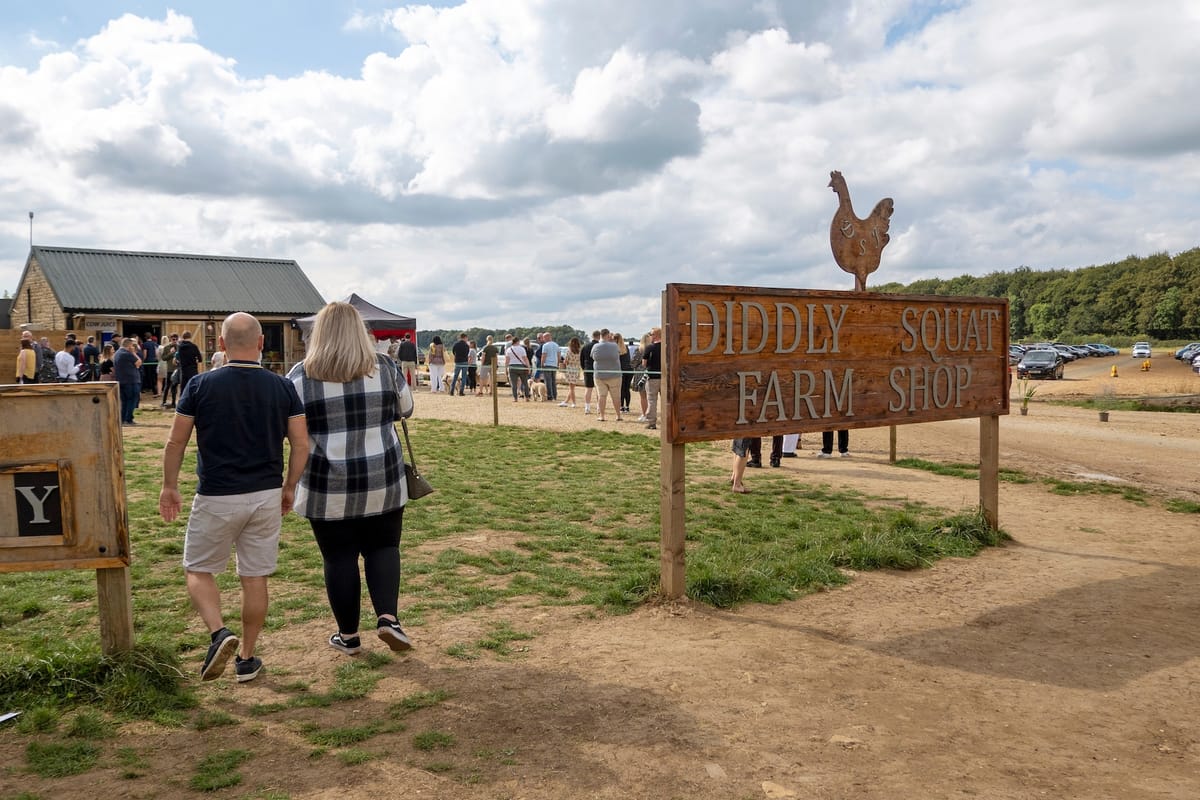

The Genesis of Clarkson's Farm
Clarkson's Farm, a docuseries featuring Jeremy Clarkson, first aired in 2021 on Amazon Prime Video. The show follows Clarkson as he attempts to run a 1,000-acre farm in the Cotswolds, England. Initially conceived as a light-hearted look at farming, the series quickly evolved into a deeper exploration of the complexities and challenges of modern agriculture.
The first season introduced viewers to the farm's diverse operations, from raising livestock to growing crops. Clarkson's humorous approach to farming, coupled with his genuine curiosity and willingness to learn, made the show an instant hit. The series not only entertained but also educated viewers about the realities of farming life.
Season 1: Learning the Ropes
In the inaugural season, viewers were introduced to the farm's key players, including Clarkson's advisor, Kaleb Cooper, and farm manager, Charlie Ireland. The season focused on Clarkson's initial struggles with farming basics, such as planting crops and managing livestock. One of the standout moments was Clarkson's attempt to plant oilseed rape, which ultimately failed due to poor soil conditions.
Despite the setbacks, the season showcased the resilience and determination required in farming. Clarkson's journey from novice to a more knowledgeable farmer was both entertaining and inspiring. The season also highlighted the importance of community and support in rural areas, as Clarkson relied on local farmers for advice and assistance.
Season 2: Expanding Horizons
The second season of Clarkson's Farm saw Jeremy expanding his operations and tackling new challenges. One of the major focuses was the introduction of a restaurant on the farm, which required Clarkson to navigate the complexities of food safety regulations and local council approvals. The restaurant project showcased the bureaucratic hurdles that farmers often face when trying to diversify their income streams.
Another significant aspect of Season 2 was the increased focus on animal husbandry. Clarkson and his team dealt with the emotional and financial challenges of raising and selling livestock, particularly cows. The season also delved into the impact of weather on farming, with Clarkson facing drought conditions that affected crop yields.
The second season further solidified the show's appeal by blending humor with heartfelt moments, such as the birth of calves and the emotional farewell to some of the farm's animals. It also continued to educate viewers about the intricacies of farming, from soil management to the economics of agriculture.
Season 3: Facing New Challenges
By the third season, Clarkson's Farm had become a well-oiled machine, but new challenges emerged. The season focused on the impact of Brexit on farming, with Clarkson navigating the changes in subsidies and regulations. This season also saw Clarkson experimenting with new crops, such as mustard, in an effort to diversify and increase profitability.
One of the most poignant moments of Season 3 was the loss of several animals, which highlighted the emotional toll of farming. Clarkson's genuine care for his livestock and the farm's workers was evident throughout the season, adding depth to the show's narrative. The season also explored the importance of sustainable farming practices, with Clarkson implementing new techniques to improve soil health and reduce waste.
The third season continued to balance humor and education, making it a compelling watch for both farming enthusiasts and casual viewers. It also underscored the importance of adaptability and innovation in the face of changing agricultural landscapes.
The Impact of Clarkson's Farm
Clarkson's Farm has had a significant impact on public perception of farming. The show has brought attention to the challenges faced by farmers, from unpredictable weather to fluctuating markets. It has also sparked interest in rural life and agriculture, with many viewers expressing a newfound appreciation for the hard work and dedication required in farming.
The series has also been praised for its educational value, providing viewers with insights into various aspects of farming, from crop rotation to animal welfare. Clarkson's willingness to share his failures and successes has made the show relatable and engaging, encouraging viewers to support local farmers and understand the complexities of modern agriculture.
Looking Ahead: The Future of Clarkson's Farm
As Clarkson's Farm continues to captivate audiences, the future looks promising for the series. With each season, Clarkson and his team have demonstrated a commitment to learning and improving their farming practices. The show's success has also opened up opportunities for further exploration of rural life and agriculture.
Looking ahead, viewers can expect more innovative projects and heartfelt stories from Clarkson's Farm. The series will likely continue to highlight the importance of sustainable farming and the resilience of the farming community. As Jeremy Clarkson and his team navigate the ever-changing landscape of agriculture, they will undoubtedly provide more valuable insights and entertaining moments for viewers to enjoy.
Dues are $12 per year. Member benefits:
✅ Ad-Free Website Viewing
✅ Advocacy for Republican Seniors
✅ 120+ Senior Discounts
✅ Member Only Newsletters